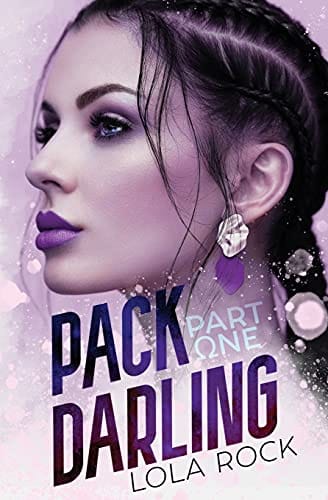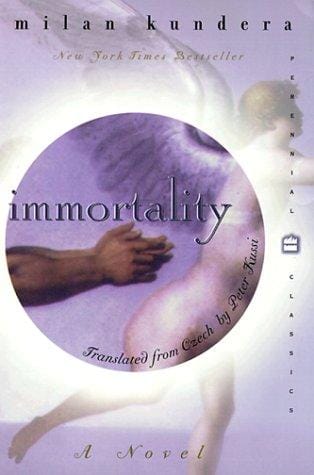Rebecca by Daphne du Maurier: A Deep Dive into the Gothic Classic
Explore Daphne du Maurier's Gothic masterpiece Rebecca—plot, themes, adaptations, and why we still return to Manderley after more than 80 years.

Rebecca: The Timeless Allure of Daphne du Maurier’s Gothic Masterpiece
Few novels cast a spell as enduring as Daphne du Maurier’s 1938 classic, Rebecca. From its immortal opening line—“Last night I dreamt I went to Manderley again”—to its smoldering finale, the book melds romance, suspense, and psychological horror with sleek precision. More than eighty years after publication, readers still debate its characters, parse its symbolism, and revisit its windswept Cornish setting. This article offers an 800-word exploration of Rebecca, including a concise plot summary, key themes, notable adaptations, and tips for literary tourists hoping to walk in the shadow of Manderley.
Plot Summary: From Monte Carlo to the Ashes of Manderley
The unnamed heroine, a shy paid companion, meets the brooding widower Maxim de Winter in Monte Carlo. After a whirlwind courtship, they marry and return to Maxim’s ancestral estate, Manderley. Yet the memory of Maxim’s first wife, the dazzling Rebecca, permeates every corridor. The new Mrs. de Winter struggles to escape Rebecca’s posthumous dominance, feeling constantly compared and perpetually inferior. Her chief tormentor is Mrs. Danvers, the sinister housekeeper who adored Rebecca and preserves her rooms as a shrine.
When the sunken wreck of Rebecca’s boat is discovered and forensic evidence contradicts earlier accounts of her death, the narrative pivots from Gothic romance to legal thriller. Maxim confesses that his marriage to Rebecca was a sham and that he shot her in a moment of rage. A coroner’s inquest reclassifies Rebecca’s death as suicide, sparing Maxim prosecution but not moral ruin. In the final chapter, the couple races back to Manderley only to see it engulfed in flames—an ambiguous blaze widely interpreted as Mrs. Danvers’s last act of devotion to her mistress.
Major Themes and Motifs
Identity and Self-Worth: The heroine’s lack of a first name emphasizes her fragile sense of self. Only by learning the truth about Rebecca does she step out of the shadow and claim agency.
Memory and Haunting: Rebecca never appears alive, yet her presence is palpable. Du Maurier uses physical spaces—bedrooms, boathouses, and gardens—as haunted reliquaries of personal history.
Class and Power: Social hierarchies shape every interaction. From stiff upper-class etiquette to Mrs. Danvers’s servile obsession, the novel interrogates how wealth and status warp loyalty and desire.
Marriage and Secrecy: Behind the glamorous façade of the de Winter union lies deception, emotional cruelty, and murder. The novel questions whether love can survive without transparency.
Literary Style: Gothic Atmosphere Meets Modern Psychology
Du Maurier fuses 19th-century Gothic elements—creepy manor, stormy coast, spectral presence—with 20th-century psychological realism. Her deft use of first-person narration traps readers inside the heroine’s anxious mind, creating suspense not through monsters but through insecurity and doubt. Vivid sensory descriptions—salt-tanged air, damp stone, blood-red rhododendrons—immerse the audience and foreshadow danger.
Notable Adaptations and Retellings
Alfred Hitchcock’s 1940 film won the Academy Award for Best Picture and cemented Rebecca in popular culture. Hitchcock preserved the novel’s eerie tension while bowing to the Hollywood Production Code by softening Maxim’s culpability.
In 2020, Netflix released a visually lush adaptation starring Lily James, Armie Hammer, and Kristin Scott Thomas. While opinions vary, the film rekindled interest among younger viewers and spurred fresh discussions about consent, power imbalance, and trauma.
The story has also inspired stage plays, radio dramas, and modern reimaginings such as Susan Hill’s Mrs de Winter and Lisa Gabriele’s The Winters, proving that Rebecca’s ghost still stalks contemporary fiction.
Cultural Impact and Enduring Legacy
Rebecca elevated the popular “romantic suspense” genre to literary respectability, paving the way for later authors like Shirley Jackson and Gillian Flynn. Its themes of female agency and toxic relationships resonate with ongoing cultural conversations about autonomy and abusive power dynamics. Academic scholarship situates the novel within both feminist and queer readings, with critics highlighting Rebecca and Mrs. Danvers’s intense bond as a coded same-sex devotion rendered taboo by 1930s mores.
Visiting Manderley: Literary Tourism in Cornwall
Although Manderley is fictional, du Maurier drew inspiration from several real Cornish estates, particularly Menabilly, the secluded mansion she leased for decades. Visitors to Cornwall can tour Fowey, where du Maurier lived and wrote, hike the windswept cliffs of Polridmouth Cove, and explore St. Catherine’s Castle—each offering vistas that echo the novel’s moody scenery.
The annual Fowey Festival of Arts and Literature, originally the Daphne du Maurier Festival, hosts readings, guided walks, and panel discussions. Fans looking to “dream of Manderley again” will find plenty of immersive experiences among Cornwall’s mist-shrouded headlands.
Why We Still Return to Manderley
At its core, Rebecca endures because it marries propulsive storytelling with profound psychological insight. Du Maurier understood that the most terrifying hauntings occur inside the mind—the fear of not being good enough, the dread that someone else’s memory can eclipse your existence. Every re-reading offers a new perspective: Is Maxim a tragic anti-hero or a manipulative villain? Is the heroine’s transformation empowering or unsettling? These ambiguities invite endless debate and ensure the novel’s place in both popular and academic canons.
For readers craving atmosphere, intrigue, and emotional complexity, Rebecca remains the gold standard. And so we return to Manderley again and again, drawn by the crashing surf, the twisting corridors, and the seductive specter of a woman who, even in death, refuses to relinquish the stage.
Conclusion
Daphne du Maurier’s Rebecca transcends genre boundaries, blending romance, mystery, and Gothic horror into a story that feels startlingly modern. Its exploration of identity, power, and memory continues to enthrall readers and inspire creators across media. Whether you are discovering the novel for the first time or revisiting its brooding corridors, Rebecca’s legacy guarantees one truth: Manderley will always be waiting, half-hidden in the Cornish mist, ready to welcome—or consume—its next visitor.



